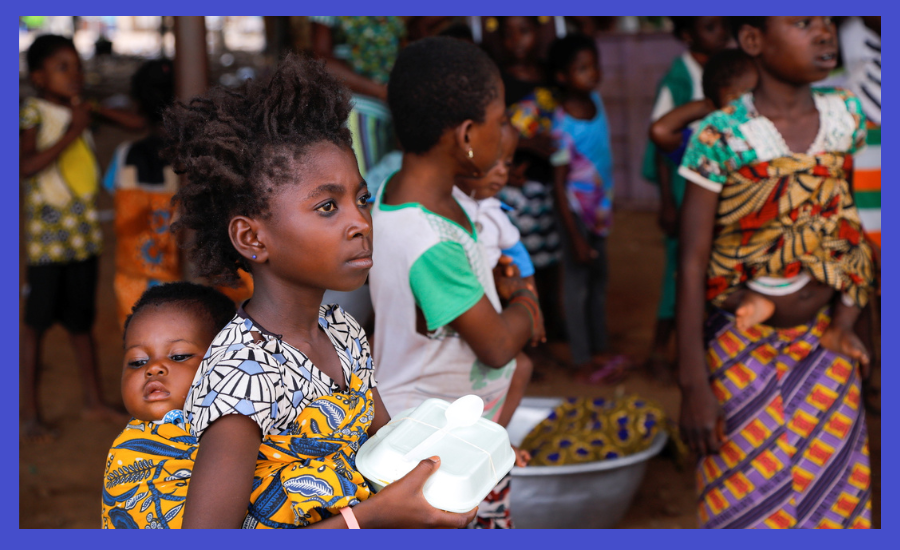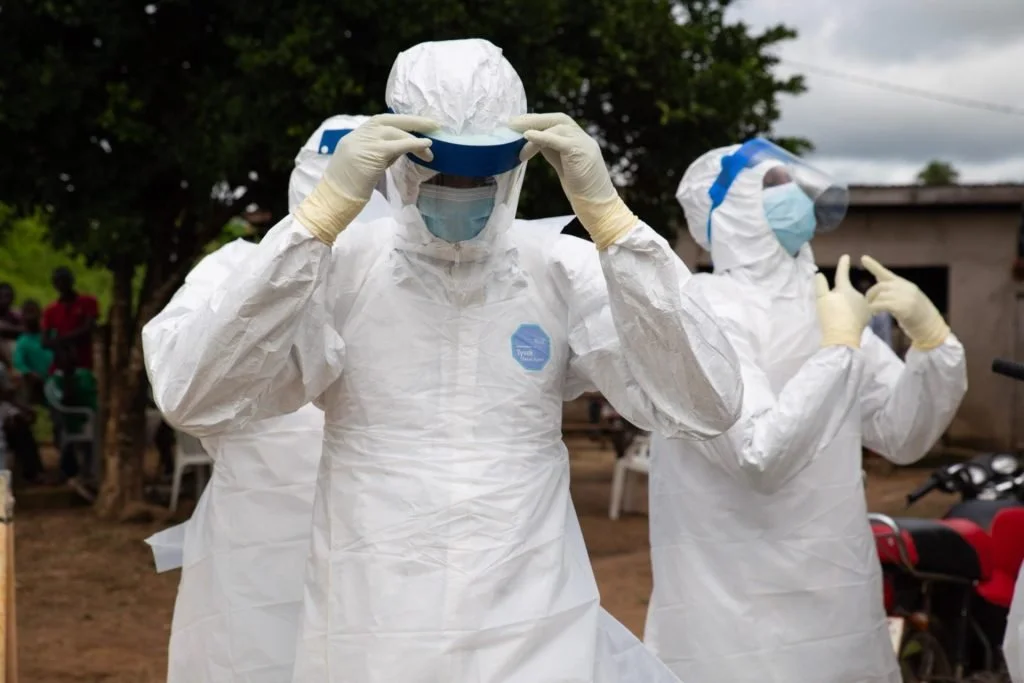Africa’s food crisis is the biggest yet – five reasons why
By Joe Bavier, Abdi Sheikh, Michael Ovaska and Aditi Bhandari
A young girl holds a pack of free lunch during a food distribution exercise by the Food For All Africa. (REUTERS/Francis Kokoroko)
In October, Nadifa Abdi Isak brought her malnourished daughters to hospital in Mogadishu. That day, a nurse said, 42 other children had already been checked into the emergency unit, ravaged by hunger. There were 57 the day before that.
Staff at the Benadir maternity and paediatric hospital said admissions of malnourished children have more than doubled their patient numbers over the past year. They are now treating over 1,000 emergency cases each month.
Half a million children’s lives are at risk from a looming famine in Somalia, according to the United Nations – that’s more than in any country worldwide this century.
A mother lays beside her malnourished child, who is receiving oxygen in the Benadir hospital in Mogadishu, Somalia. (REUTERS/Feisal Omar)
Across Africa, from east to west, people are experiencing a food crisis that is bigger and more complex than the continent has ever seen, say diplomats and humanitarian workers.
One in five Africans – a record 278 million people – were already facing hunger in 2021, according to data from the U.N. Food and Agriculture Organization (FAO). It says the situation has worsened.
The number of East Africans experiencing acute food insecurity – when a lack of food puts lives or livelihoods in immediate danger – has spiked by 60% in just the last year, and by nearly 40% in West Africa, according to the World Food Programme (WFP).
Conflict and climate change are the long-term causes. Heavy debt burdens following the COVID-19 pandemic, rising prices and war in Ukraine have made things much worse as European aid has been sucked away, data and testimony from more than a dozen experts, donors, diplomats, medical staff and men and women in farms and marketplaces across nearly a dozen countries in Africa and beyond shows.
Benadir Hospital is coping, said Dr. Aweis Olow, head of its paediatric department. But referrals from other clinics are accelerating: “Without a lot of help from the rest of the world, the situation will be out of control.”
Here, alongside Isak’s story, are five reasons Africa is suffering from the worst food crisis ever recorded:
#1 Climate Change
East Africa has missed four consecutive rainy seasons, the worst drought in 40 years, Michael Dunford, the WFP’s East Africa director said. “The situation has never been as bad from a regional perspective as it is today.”
#2 Conflict In Africa
Conflict has long been a driver of hunger. War forces civilians from their homes, livelihoods, farms and food sources. It also makes it dangerous to deliver assistance.
#3 Conflict In Europe
Russia's invasion of Ukraine in February, which Moscow calls a “special military operation,” added to Africa's problems. The crisis distracted wealthy governments’ humanitarian agencies for the first half of this year, said a senior Western government official involved in humanitarian response in Africa. “When Ukraine happened, it sucked all the oxygen out of the room,” he said.
#4 Debt
COVID-19 left Africa facing the strongest economic headwinds in years, according to the International Monetary Fund (IMF). After years of borrowing, countries are struggling to service their debts.
#5 Governments
African governments have done little to prevent food crises from recurring. In a move to boost production, reduce import reliance and improve food security, leaders in 2003 pledged to commit at least 10% of their national budgets to agriculture and rural development within five years. By 2021, nearly two decades later, just two countries in sub-Saharan Africa – Mali and Zimbabwe – met that target.







